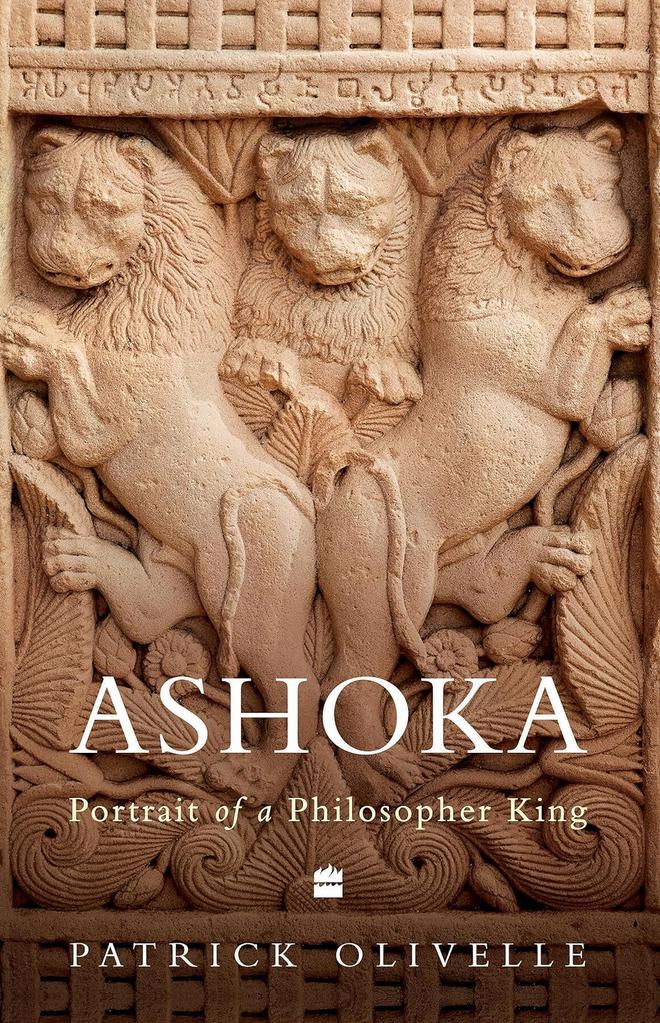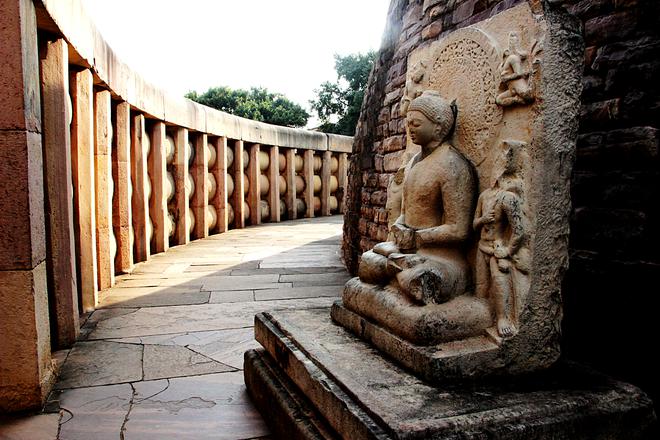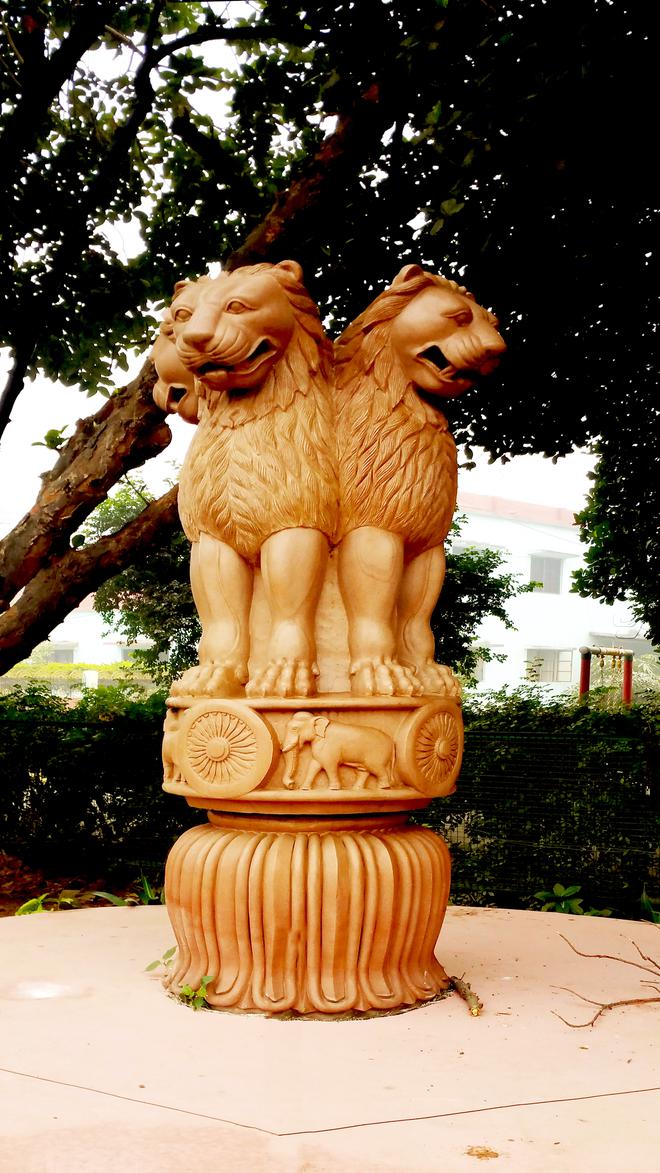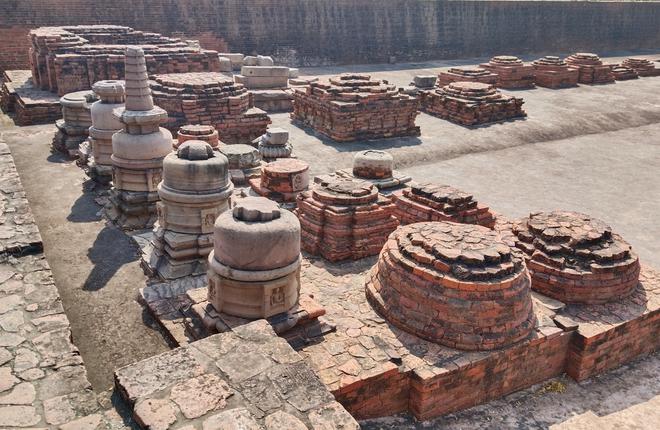Under Ashoka, the last great Mauryan emperor, the empire extended across almost the entirety of the Indian subcontinent. In his new book, Ashoka: Portrait of a Philospher King, Patrick Olivelle examinies the life of Ashoka, and issues around his approach to violence, religious harmony, his relationship with Buddhism and his development of the concept of dharma. In an interview with the historian Manu S. Pillai, the Professor Emeritus at the University of Texas at Austin explains why Ashoka is ‘unique’ in many ways. Edited excerpts.

You describe Ashoka as a ‘Philosopher King’. In Indian history, we hear of warrior kings (where martial achievement is central) and poet-kings (the idea of the kavi-raja), and so on. Is the philosopher king a rarer commodity?
Yes, indeed, it is not only rare but perhaps unique. The only other example one can think of is the Mughal king Akbar. There are so many ways in which Ashoka is “unique”, and that was part of his greatness. His ancestors did not provide a blueprint for his activities. He was a trailblazer. But, alas, his successors were unable or unwilling to follow the path that he had trodden.

A key point of the book is the re-centreing of Ashoka’s kingship. That is, you argue, he was “not a Buddhist king but a king ‘who happened to be’ a Buddhist.” Why is kingship so critical to understanding Ashoka and his purpose?
I want to “centre” the royal identity of Ashoka simply because that is the identity that Ashoka himself ascribes to himself throughout his writings. The beginnings of most of his edicts say: devānampiyo piyadasi lājā hevam āha — “The Beloved of Gods, KING Priyadarśi proclaims thus.” Even in his letter to Buddhist monks he identifies himself as “raja/lāja” — king. None of the other initiatives that Ashoka undertook — none of his other identities as Buddhist, Moral Philosopher, Ecumenist — would have been possible were he not the king. One other reason for the comment you cite is that except for his first Minor Rock Edict, he never propagates Buddhism. Ashoka may have provided the space, the conditions (peace, social and economic stability, security) for Buddhism to thrive. Ashoka was not its cause.

Ashoka’s Buddhism itself is an interesting, politically inflected substance. As you show, he selected aspects of Buddhism and gave them fresh direction to produce something distinct. What makes Ashoka’s idea of dharma different from a simplistic state sponsorship of Buddhism?
I don’t think that Ashoka’s dharma is a simple recasting of the Buddhist dharma. It is something new and novel. That Ashoka’s thinking on dharma and other religious and philosophical topics was influenced by his Buddhist faith is obvious. But he went beyond the Buddhist definition of dharma. Many of the central tenets of Buddhist moral philosophy are absent in Ashoka’s articulation of his dharma. The only prominent feature shared by both is Ahimsa, not killing or hurting living beings. But that was a corner stone of morality common to many new religions that originated in Magadha, Ashoka’s home territory. I take pains in Part Three of my book to explicate Ashoka’s concept of dharma. He envisaged dharma as something that stands above the individual religions of his day and adds value to them. And I think it also has added “political” dimensions, being part of his own political theology.

There is the old cliché of Ashoka as a pacifist; according to popular beliefs, he even weakened his empire by taking non-violence to great extremes. You demonstrate that this is not accurate, and that even if he disliked violence, he retained his kingly prerogative to deploy it when needed. Do tell us about this tension — or if it was cause for tension at all in his worldview? Is it a limitation in ‘our’ thinking that we even perceive this as tension?
I have recently written a paper on the moral dilemmas created by the principle of Ahimsa even outside the state domain. Do you not kill someone who comes to kill your family? Does the ritual killing of animals prescribed in numerous rituals go against Ahimsa? What about soldiers? Can they kill in battle? So, I think Ashoka’s dilemma is not of our own making. It is the inevitable corollary of a moral philosophy based on absolute and uncompromising Ahimsa. For Ashoka as an individual, the dilemma is expressed in the first Rock Edict where he confesses that three peacocks and one game animal continue to be killed each day in the imperial kitchens. And he is clear in several of his writings, especially in Rock Edict 12, that he can and will use force when he must. The tension you allude to is there in Ashoka’s writings. But whether he saw the logical difficulties in the Ahimsa doctrine the same way as we do from this distance is hard to tell. My feeling is they may not have seen the contradictions quite as clearly as we do as we engage in arm-chair philosophy.
What was the religious landscape like in Ashoka’s time? In the book we encounter popular religions on the ground, more organised movements led by Brahmins, Sramanas, and “other Pasandas”. How did Ashoka address this situation? We find him not so much encouraging tolerance as seeking to construct something greater.
What emerges from Ashoka’s writings is that his attitude to what we may call “popular religion” was dramatically different from his attitude toward organised “higher” religions of his day, the ones he calls Pasanda. He is quite dismissive of the former, especially the ceremonies that he refers to as “mangala” — auspicious rituals carried out on various occasions such as the birth of a child or a marriage. He thinks these are frivolous and unproductive. He invites the people to do what he calls “dharma-mangala” — but he does not tell us what it consists of. He has a far more positive view of Pasandas — after all, he himself belonged to one such Pasanda, the Buddhist. However, it appears that he thought many or most Pasandas of his day were too narrowminded; they were inward looking and antagonistic. He asks them to be “nice” to each other — that is tolerance, and for Ashoka that is the minimum. This minimum may have been also necessary for social harmony within his kingdom. Yet, Ashoka thinks that more is required. He makes the astonishing claim that no single Pasanda possesses the full truth, the full dharma. Astonishing, because as a Buddhist he must have been told that the Buddha obtained the fullness of truth and dharma at his enlightenment. Did he subscribe to this doctrine? Ashoka claims that to be truly learned — bahusuta — one must “listen” to others, learn from others. He deftly uses the several meanings of the verb -su (-śru in Sanskrit), which means both to hear/listen and to learn. So, to become a learned person (bahusuta) one must listen to and learn from others. So, yes, Ashoka was seeking something more than mere tolerance, and I use the modern word ecumenism to describe his effort at inter-religious dialogue and cooperation.
Who, in the end, “was” Ashoka? You highlight that the book is not an answer but a search. Is this a question to which we may never have a wholly satisfying answer?
What I try to emphasise in the book is that Ashoka was a complex person. I try to bring out his multi-dimensional and polychromatic personality. So, there may not be a simple answer. He was a king; he was a Buddhist; he was a writer; he was a preacher; he was an educator. From today’s perspective he may seem to be arrogant and self-righteous. He seems impatient and demanding. He demanded obedience from his bureaucrats. At the same time, he did break the mould of what a king was supposed to be during his time. He redefined kingship. With his ecumenical spirit and endeavour, he also redefined what it meant to be a Buddhist — or a member of any Pasanda, be it Jain or Brahmanical. He was innovative and even visionary — just think of the fact that he was the first in India to communicate with his subject via the written medium, that he was the first to build monumental architecture of polished stone. Yes, he was a complex human being, as most of us are.
Ashoka: Portrait of a Philosopher King; Patrick Olivelle, HarperCollins, ₹799.
The interviewer is a historian.







